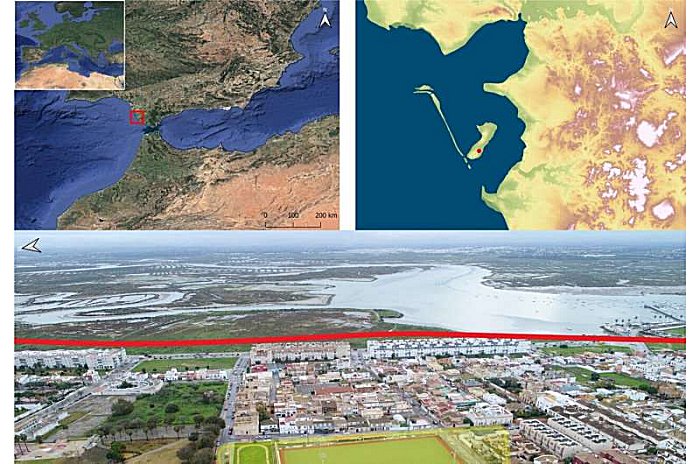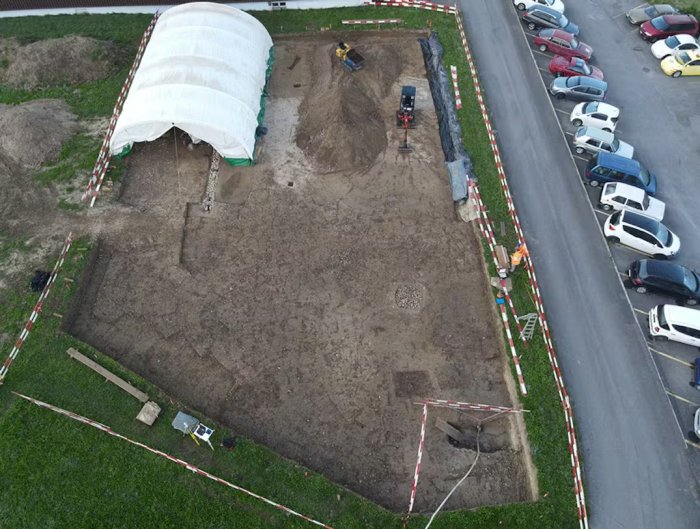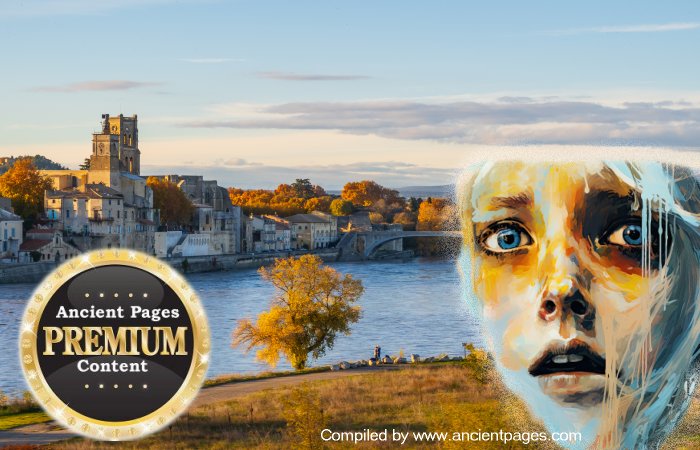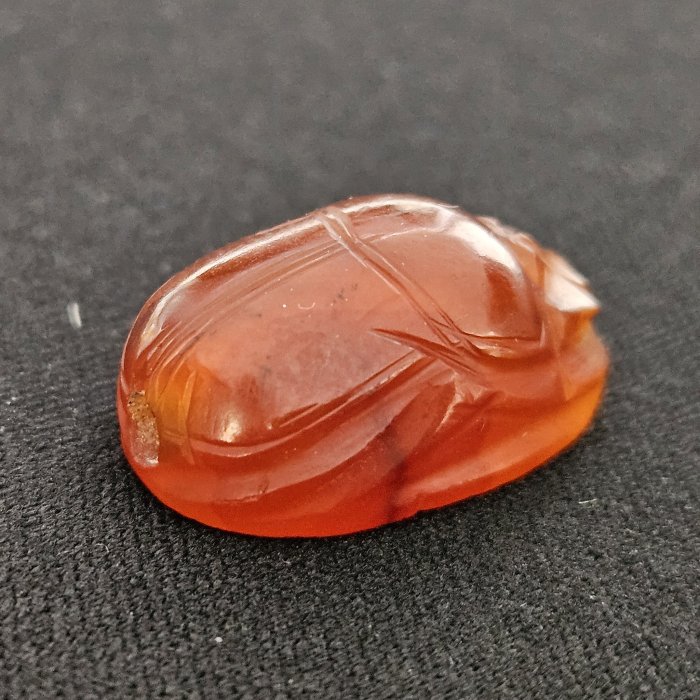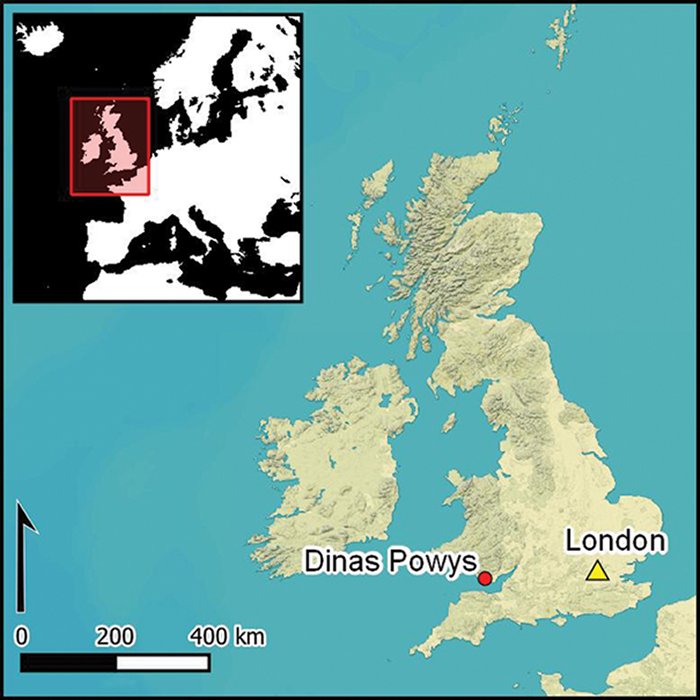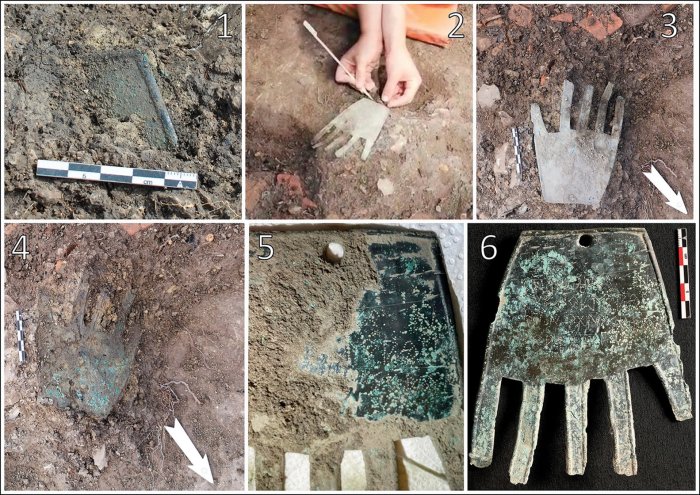Jan Bartek – AncientPages.com – Several magnificent Iron Age, Roman, and post-Medieval artifacts found in Monmouthshire, a county in the southeast of Wales, have been declared a treasure. According to experts, some Roman finds could suggest a previously undiscovered settlement in the area.
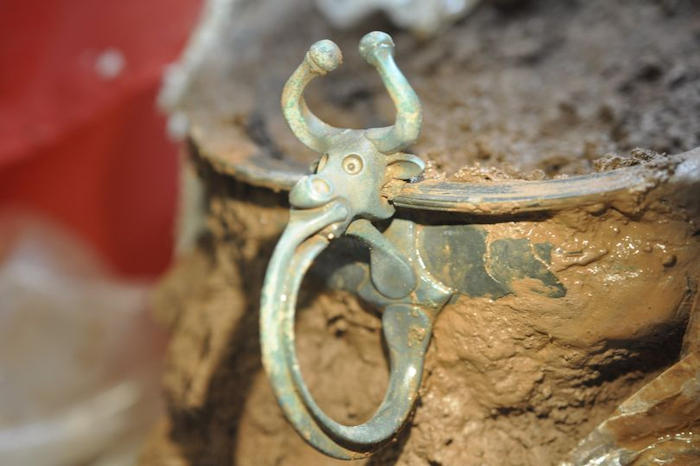
The Llantrisant ox bowl handle was excavated. Credit: National Museum Wales
Metal detectorist Jon Matthews found the objects dating back thousands of years in a field in Llantrisant Fawr. The ancient artifacts were in remarkably good condition, and Matthews described them as “true beauty.”
Four treasure finds, including an Iron Age vessel hoard, a Roman coin hoard, and two silver artifacts from the 17th-century date, were declared treasure by the ᴀssistant coroner for Gwent, Rose Farmer.
“While he did not initially know what he had found, he thought it might be something important. After calling the local find liaison officer, the artefacts, a Roman pot and a Celtic bucket mount, were delicately dug up and taken to Amgueddfa Cymru. A few weeks later, Jon was able to join the museum’s excavation team at the site.
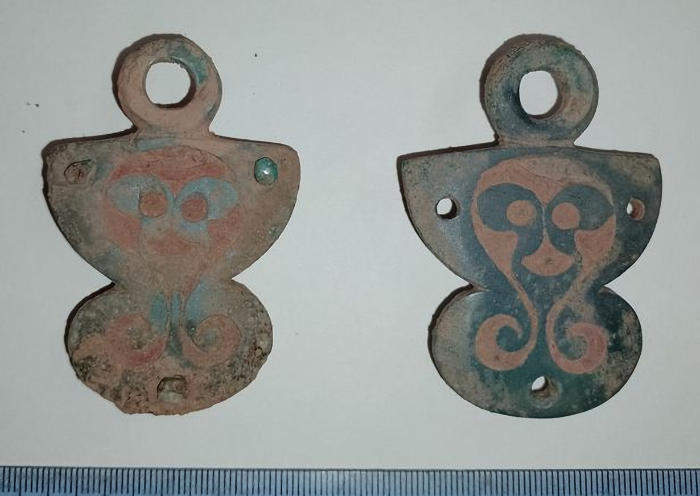
Bucket mounts found at Llantrisant Fawr. Credit: National Museum Wales
Here, the team discovered more artefacts – including a bowl decorated with an ox’s face that the team initially believed to be a brooch. Jon, who has been a detectorist for ten years, said coming across the bowl was a “surreal” moment, adding: “I’ve never seen anything like it. I didn’t think our ancestors could make such a beautiful, beautiful thing. I was quite shocked.
Following an investigation by staff from the Portable Antiquities Scheme in Wales (PAS Cymru) and Amgueddfa Cymru, a total of two complete and six fragmentary vessels were recovered. The remains of two wooden tankards and an Iron Age bucket with copper alloy fittings, an Iron Age copper alloy bowl, cauldron and strainer, and two Roman copper alloy saucepans have been identified. The vessels appear to have been buried as a group around the time of the Roman conquest, in the second half of the first century AD.,” Wales Online reports.
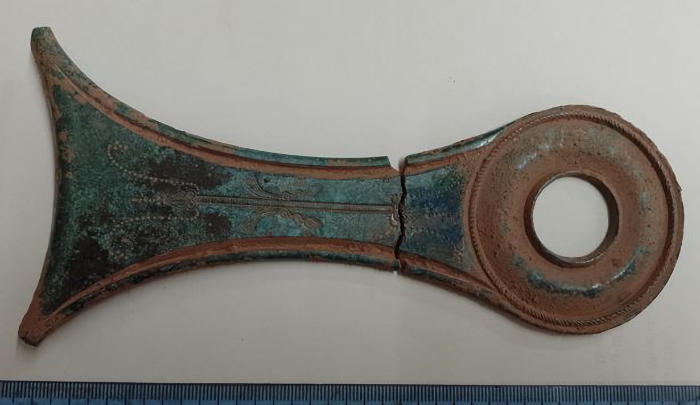
A Roman trulleus handle found at Llantrisant Fawr. Credit: National Museum Wales
“I feel honored to have found something so unique that is linked to Wales and our ancestors. The archaeologists I excavated the hoard with were a fantastic group of people and through our combined efforts we were able to learn so much from the finds,” Matthews said.
Another intriguing find was made in a ploughed field in Caerwent where Colin Price and Rhys Cadwallader discovered a hoard of Roman coins between 2014 and 2022.
Now that it’s been declared treasure, I’m excited to finally share this incredible hoard that I was so lucky to help excavate. The c.1st century AD Llantrisant Fawr vessel hoard found near Usk, Monmouthshire 🏴
We named the ox, Bovril 🥰#FindsFriday https://t.co/3DqErFqNBu pic.twitter.com/2fqYyQXUFa
— Dr! Adelle Bricking (@archae_delle) May 5, 2023
“These copper-alloy coins date to the late-third to late-fourth centuries AD. They were found in the same field as Wales’s first hoard of Roman siliquae, a very late Roman silver coin type.
Together, these two hoards reveal intriguing insights into a newly discovered site dating from the very end of the Roman occupation of Britain,” South Wales Argus reports.
“The discovery of two coin-hoards in the same field and in the general vicinity of the Roman town at Caerwent, is exciting and significant.
See also: More Archaeology News
The results of the geophysical survey undertaken suggest the presence of a previously unknown settlement or religious site where the coin hoards were buried,” Alastair Willis, senior curator of numismatics and the Welsh Economy at Museum Wales, said.
Written by Jan Bartek – AncientPages.com Staff Writer
